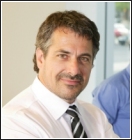 People in recovery from addiction face very substantial stresses. The stress of trying to cope with cravings & urges, the stress of facing life and trying to resolve problems, and the common pressure of trying to make ends meet when finances are not in good shape.
People in recovery from addiction face very substantial stresses. The stress of trying to cope with cravings & urges, the stress of facing life and trying to resolve problems, and the common pressure of trying to make ends meet when finances are not in good shape.
While many addicted individuals find that they are more resilient than perhaps they ever believed, loss can sometimes be a particularly crippling experience. People from all walks of life suffer and struggle with losses – divorce, the death of a loved one, the loss of a job, income, security, or health.
A recent New York Times article briefly profiled a young woman released from prison who was trying to stay clean from heroin. She really missed her child who had been removed from her custody. While she loved her baby, she also recognized she was not yet ready to resume the pressures and responsibilities of parenting until she got herself on more solid, sober ground.
With the death of a loved one, the feelings run so deep that coping is sometimes beyond one’s inner resources. Grief has a way of overwhelming the senses and the heart such that making rational choices is much harder than would normally be the case. In extreme emotional situations, thoughts can become paralyzed and feelings intensified. Such a combination can make sobriety incredibly challenging.
Emotional pain is part of life. We have all felt it. Recovery teaches many principles that help to make life more manageable and which can help a person to hold on, to survive the lows of life. And for those that slip, life must go on. All is not lost. In 12 step meetings, they say “keep coming back”. In treatment, they say, “don’t give up”. While these may sound like annoying platitudes, they are generally true and correct sentiments that are there to remind us that pain subsides, and the human heart can find a way to survive and to be happy again.
How this happens varies greatly from one person to another. Support from others can make a huge difference. Prayer and connection with the proverbial higher power can make a difference. We are connected (or can be connected) to good people and good things if we try to open ourselves to them. It is not always easy when we are hurting. Therapy and counseling sometimes point us to answers that we didn’t know even existed. Spiritual support can achieve this as well. Whatever life brings us, good or bad, happy or sad, hopefully we can pause for a few moments to reflect on the small blessings that so often go overlooked and underappreciated.
The message for today is to remember that you are worth it! It can get better. Recovery is always here for you.

 Follow
Follow

 Addiction is an uphill battle. We have heard this said many times before. Many who found themselves in the midst of a personal opioid addiction were swept along on a nightmarish roller coaster ride with seemingly no brake pedal within reach.
Addiction is an uphill battle. We have heard this said many times before. Many who found themselves in the midst of a personal opioid addiction were swept along on a nightmarish roller coaster ride with seemingly no brake pedal within reach.
 Methadone.US has successfully educated and enlightened many thousands of online visitors over the last two years. Our goal has been to demystify & destigmatize opioid replacement therapy, and to highlight how methadone, suboxone, and other treatment interventions can give patients a new lease on life.
Methadone.US has successfully educated and enlightened many thousands of online visitors over the last two years. Our goal has been to demystify & destigmatize opioid replacement therapy, and to highlight how methadone, suboxone, and other treatment interventions can give patients a new lease on life. A majority of clients who enter methadone programs do so without immediate family involvement in the admissions process. Often, a significant other knows of their loved one’s decision to enter treatment, but chooses to remain “on the outside”. There are several reasons for this including: apprehension about methadone clinics, feelings of embarrassment that their loved one has an opioid addiction, not wanting to invest time in the recovery process, or simply being too busy to spare the time.
A majority of clients who enter methadone programs do so without immediate family involvement in the admissions process. Often, a significant other knows of their loved one’s decision to enter treatment, but chooses to remain “on the outside”. There are several reasons for this including: apprehension about methadone clinics, feelings of embarrassment that their loved one has an opioid addiction, not wanting to invest time in the recovery process, or simply being too busy to spare the time.


